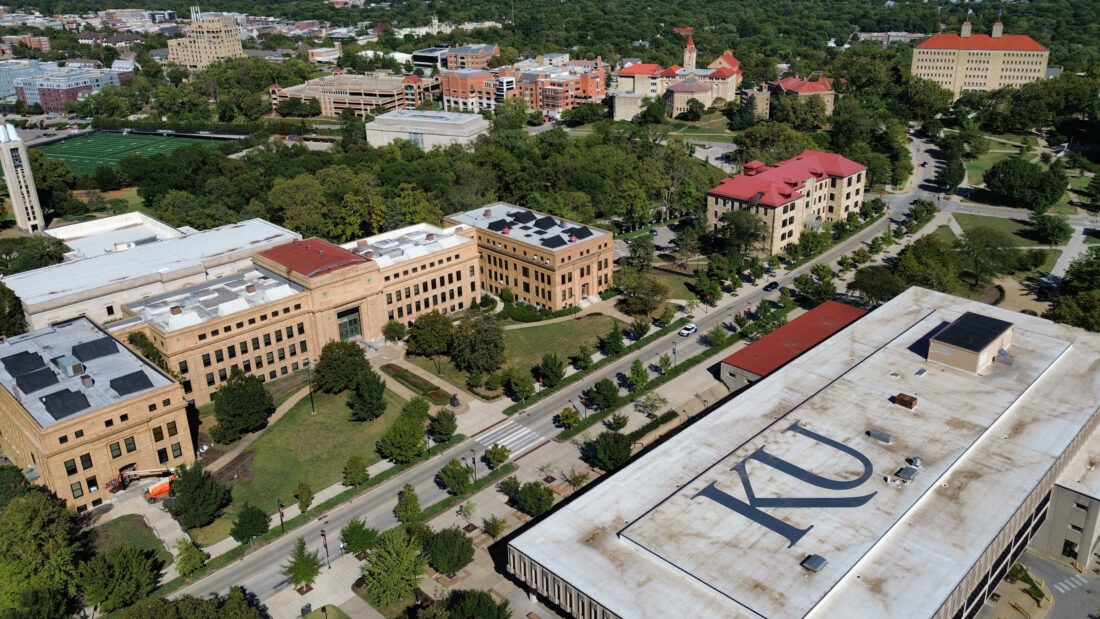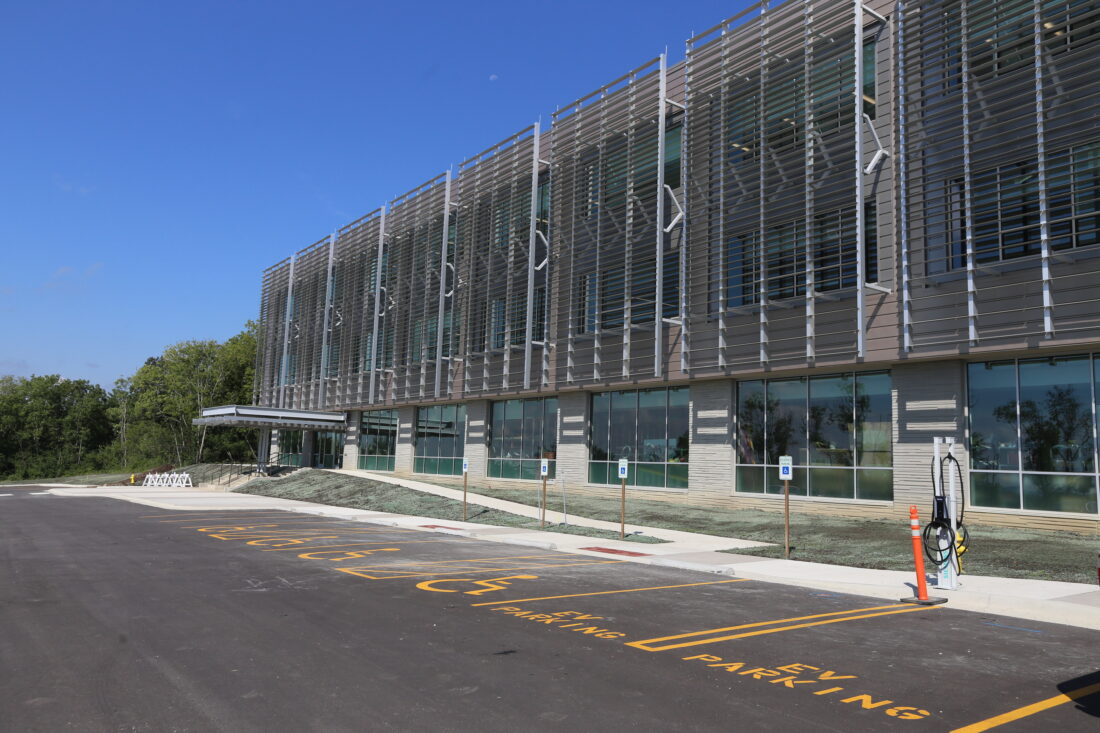
photo by: AdobeStock
A portion of a quantum computer is shown in this AdobeStock photo.
News and notes from the world of local technology start-ups.
•••
A business incubator on KU’s West Campus is in the early stages of becoming a research hub for what some would say is “spooky” science.
I’m talking about quantum physics (a former science teacher of mine just fainted,) and more specifically quantum computing. In the world of quantum physics, two particles — even those separated by great physical distance — can become linked in ways that caused none other than Albert Einstein to declare the phenomenon “spooky action” that seemingly violates the laws of physics.
In the world of computing, harnessing those particles (if I try to explain it further, someone will have to bring a defibrillator to my old teacher) can create a really powerful computer. How powerful? In some instances, a mathematical equation that would take 10,000 years for a traditional computer to solve would take about 200 seconds for a quantum computer.
Soon, a new research-based business that is locating inside of KU’s Innovation Park expects to have access to two such quantum computers.
Brilliancy Quantum Brands has announced it has become a new client of KU Innovation Park, which is the high-tech business incubator organization located on KU’s West Campus. The company will begin doing some work at KU Innovation Park next month — including hosting a national conference there — but is working to secure two lab spaces at the park for quantum computing research this spring, company President Trey Rutledge told the Journal-World.
The lab spaces would have direct links to quantum computers operated by two of the largest players in the industry, Rutledge said. Researchers — the company has three employees currently — would use time on those supercomputers to research how quantum computing can improve areas such as climate modeling, financial analysis, drug discovery, supply chains and other systems that involve complex mathematics or massive amounts of data.
Rutledge hopes to finalize agreements and launch the labs in March. Once launched, he said the lab won’t only be doing research for the sake of research, but will be able to work with companies or entire industries to use the power of quantum computing to create new efficiencies. At that point, he thinks his company’s Lawrence operations could grow significantly.
“I think what we have put together has legs of its own,” Rutledge said. “Once we get it going, we will see what it grows into. Only time will tell, but I definitely think we have the right players, and we are in the right place with the right support team.”
As for who is supporting the venture, Rutledge, who is an Olathe resident, said the company has support from a “family office” — generally a type of private wealth management firm — based in Charleston, South Carolina.

photo by: Shawn Valverde/Special to the Journal-World
The University of Kansas campus is pictured in this aerial photo from September 2023.
•••
KU is providing thousands of dollars in state grant funding to six university researchers who leaders believe are on the verge of launching successful research-based companies.
The six researchers are the first to receive awards under a new program called Rock Chalk Ready, which aims to help university researchers navigate the risks involved with turning research findings into a commercial business. The six researchers and their projects are:
• Alan Allgeier, a professor of chemical and petroleum engineering, studying technologies to extract corn oil during the ethanol production process.
• Michael Hageman, a professor of pharmaceutical chemistry, studying formulations for oral testosterone replacement therapy.
• Divya Kamath, an assistant professor of cancer biology, studying therapies for multiple sclerosis.
• Simon Patton, an assistant professor of obstetrics and gynecology, studying medical devices for improved hysterectomy surgeries.
• Shyam Sathyamoorthi, an associate professor of medicinal chemistry, studying antifungal and antibacterial agents for industrial agricultural uses.
• Mark Shiflett, a professor of chemical and petroleum engineering, studying acids for the fuel and detergent industries.
The Rock Chalk Ready awards program is funded by a FORGE grant from the Kansas Department of Commerce. In its recent announcement, KU did not specify how much each research project received in award money. However, when KU announced last year that it had received the Department of Commerce grant, the university said it anticipated providing research awards of $35,000 to each researcher chosen for the program.

photo by: Chad Lawhorn/Journal-World
KU Innovation Park’s new research and office building opened to the public on Aug. 17, 2022.
•••
KU Innovation Park is one of two entities in the state that have been tasked with distributing $800,000 in start-up assistance to entrepreneurs and early-stage companies in Kansas.
The funding is part of a pilot program through the Kansas Department of Commerce that is trying to boost business innovation in the state. The program — dubbed ACCEL-KS — will provide monetary support for young companies that are developing a proof-of-concept for a product, need funding to access lab space, require assistance in business planning or are in need of mentorship and coaching.
KU Innovation Park and Grover Labs — a Wichita-based nonprofit that helps young businesses — were awarded a combined $800,000 in state funding to distribute to approximately 30 start-up companies. A requirement of the state program is that at least 30% of the selected projects come from rural Kansas.
Businesses interested in applying for the program should schedule an appointment with a representative at KU Innovation Park for more information.
